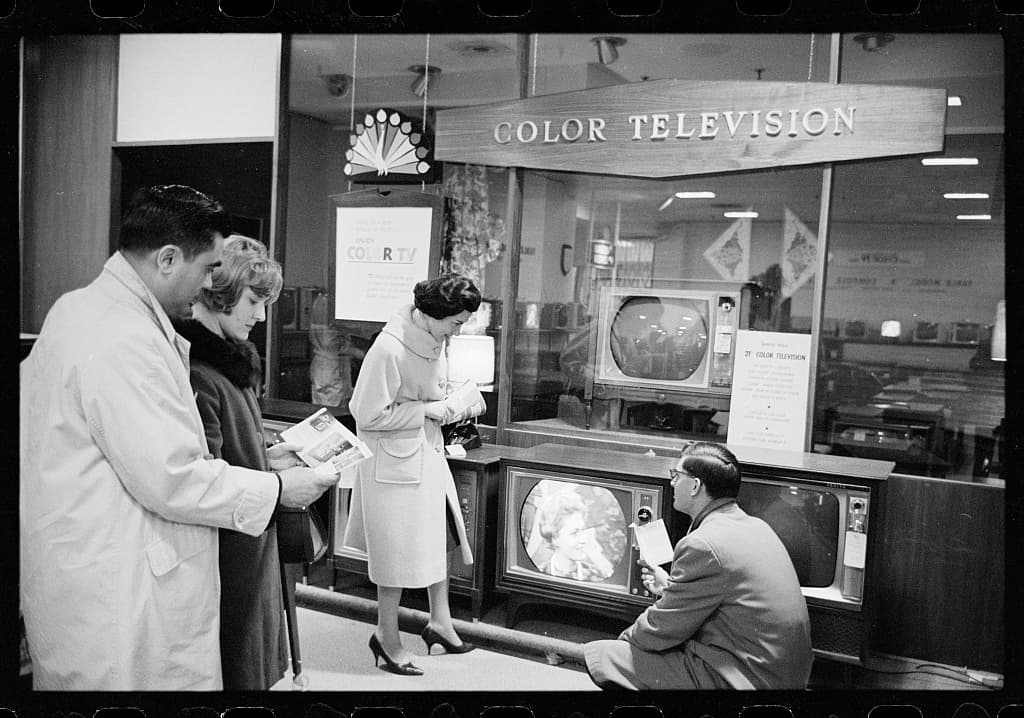The Current
The Impact of Dark Social on the Modern Conversion Funnel
by Danielle Lay and Hunter WorlandApr 18, 2024

If we interpret a customer’s buying journey literally – a trip from point A to point B – more and more consumers travel in the dark, unseen by advertisers. Much of the traditional conversion funnel which shepherded buyers from awareness to checkout has migrated to dark channels – touchpoints and interactions outside the merchant’s owned or visible arenas. That migration hinders advertisers' ability to track, attribute, and optimize customer interactions, leading to reduced visibility and control over the customer journey. The phased demolition of cookies only darkens the situation as more and more channels effectively become private and imperceptible to merchants.
Our consumer panel, focused on ages 18 – 30 where the migration is most acute, provides a real illustration. We asked the group to retrace their steps across three critical stops on the purchasing journey of their last large discretionary transaction.
The number of dark channels throughout the journey is remarkable. More surprising is how unevenly distributed their impact is and the role of text in consideration and post-purchase decisions.

A sales associate converts a department store shopper. Proliferation of channels – from UGC platforms to private messaging apps – have complicated yesteryear’s simpler sales funnel. (Library of Congress, 1965)
I. Discovery
Our panel overwhelmingly discovered their last large purchase through SEO, in-person shopping, direct ads on social media – three open channels. The pull of dark channels is uneven; discovery, by far, represents the most effective forum to target our panel:

II. Consideration
Consideration is even murkier; there’s no one dominant channel, but rather a distribution across several from soliciting feedback in-person to searching UGC on social media to scrolling Reddit for reviews. Every channel is private or semi-private, meaning limited merchant tracking, targeting, or attribution, particularly in a cookie-less world:

III. Post-purchase
Higher returns have accompanied the secular shift to e-commerce, where incidence is roughly twice that of in-person sales. Compressing returns is critical for large retailers and even existential for emerging brands as not only sunk conversion but reverse logistics costs weigh on merchant economics. Despite its importance, the post-purchase decision (i.e., whether to return an item or not) is the furthest outside merchant visibility:

The challenge of dark channels is an opportunity for commerce enablement software. Examples of how companies are rising to the challenge include:
Vendors that meet consumers at their evolving channel. Connectly, for example, leverages AI to enable two-way conversations on messaging channels to convert customers over text
Black Crow AI is leveraging predictive intelligence from brand’s first-party data to optimize marketing and conversion strategy, such as prompting anonymous visitors with email/SMS opt-in when they’re most likely to subscribe
Vizit offers an AI-powered Visual Brand Performance Platform that measures, optimizes, and monitors the effectiveness of their visual content across the digital shelf to drive higher traffic, boost conversion rates, and grow sales
Companies that improve customer support efficiency and experience, one of the most critical touchpoints in converting post-purchase customers. Forethought, for example, combines LLMs and customer data to lower costs while raising customer satisfaction by automating simple questions, triaging and enriching cases with sentiment and intent, and surfacing relevant knowledge to agents while handling cases
Platforms that convert post-purchase customers into acquisition engines. As the modern sales funnel moves to dark channels, Okendo, for instance, scales referral programs and hosts brand communities (in addition to marketing personalization, social marketing, retention tools, and rewards optimization products)
Reach out to dlay@nea.com and hworland@nea.com to continue the conversation.
Notes
This consumer survey was conducted among a representative sample of 150 adults aged 18 to 30 living in the United States. The survey was fielded using the Pollfish platform during March 2024. Pollfish partners directly with app developers; the developer defines an appropriate and specific non-cash incentive in exchange for completed surveys that benefit real consumers but doesn’t motivate them to become career panelists. Please note that as with all survey research, there is a potential for sampling error and other forms of bias. Results should be interpreted as an indication of sentiment among the target population rather than an exact measure.
The information provided in this blog post is for educational and informational purposes only and is not intended to be investment advice, or recommendation, or as an offer to sell or a solicitation of an offer to buy an interest in any fund or investment vehicle managed by NEA or any other NEA entity. New Enterprise Associates (NEA) is a registered investment adviser with the Securities and Exchange Commission (SEC). However, nothing in this post should be interpreted to suggest that the SEC has endorsed or approved the contents of this post. NEA has no obligation to update, modify, or amend the contents of this post nor to notify readers in the event that any information, opinion, forecast or estimate changes or subsequently becomes inaccurate or outdated. In addition, certain information contained herein has been obtained from third-party sources and has not been independently verified by NEA. Any statements made by founders, investors, portfolio companies, or others in the post or on other third-party websites referencing this post are their own, and are not intended to be an endorsement of the investment advisory services offered by NEA.
NEA makes no assurance that investment results obtained historically can be obtained in the future, or that any investments managed by NEA will be profitable. To the extent the content in this post discusses hypotheticals, projections, or forecasts to illustrate a view, such views may not have been verified or adopted by NEA, nor has NEA tested the validity of the assumptions that underlie such opinions. Readers of the information contained herein should consult their own legal, tax, and financial advisers because the contents are not intended by NEA to be used as part of the investment decision making process related to any investment managed by NEA.


